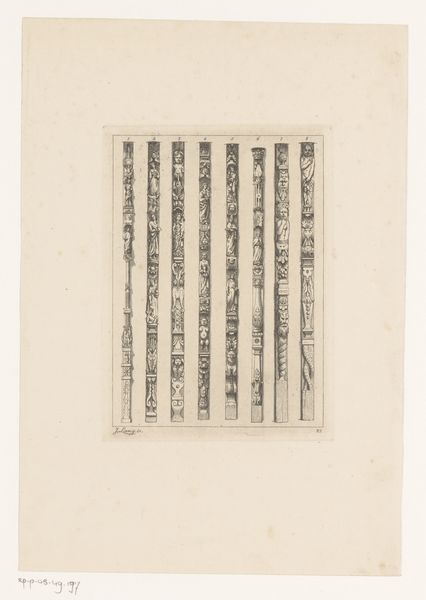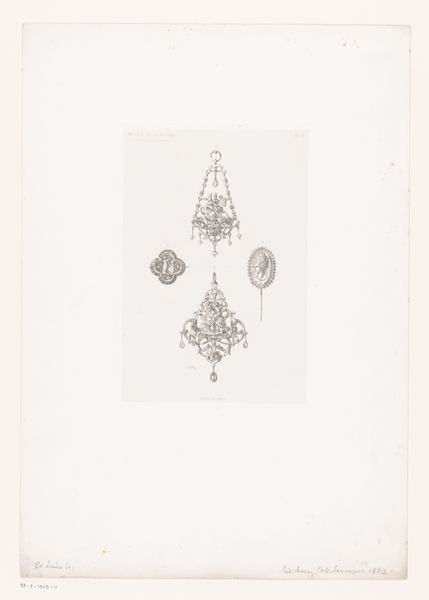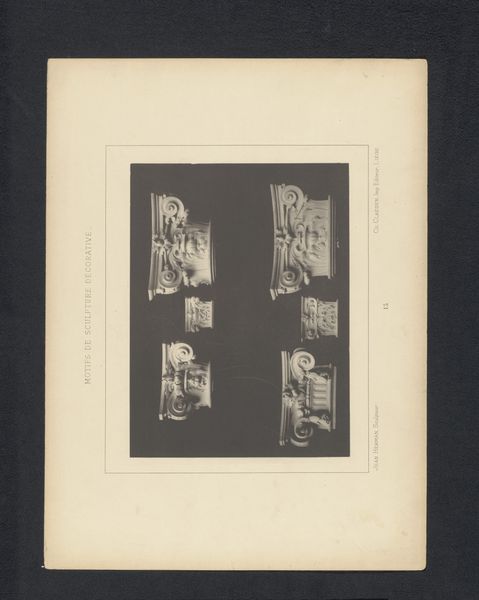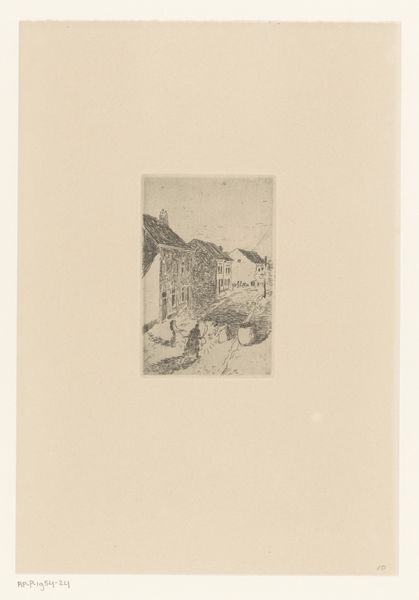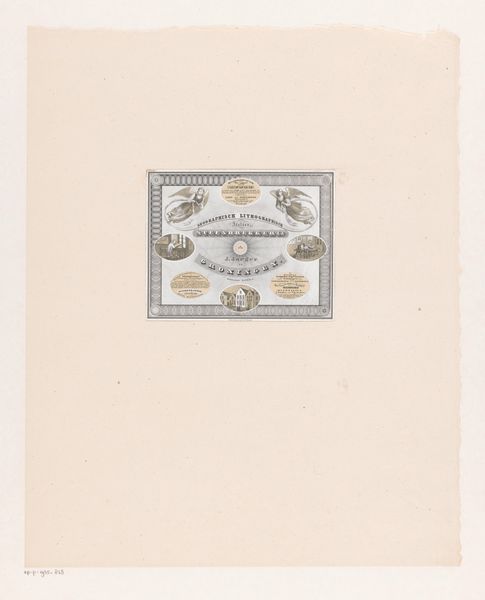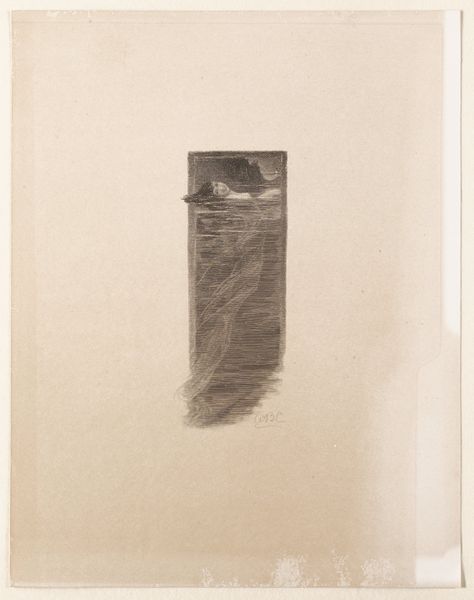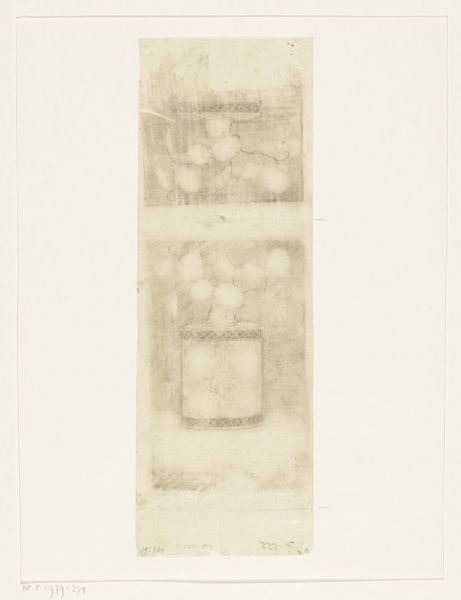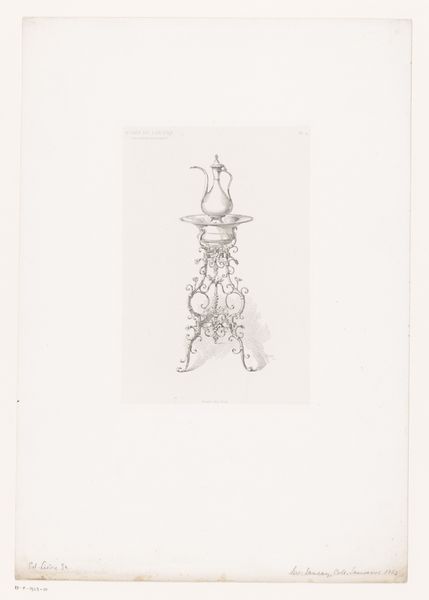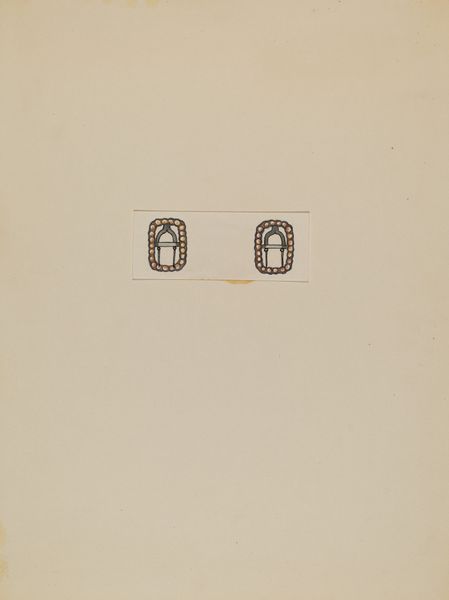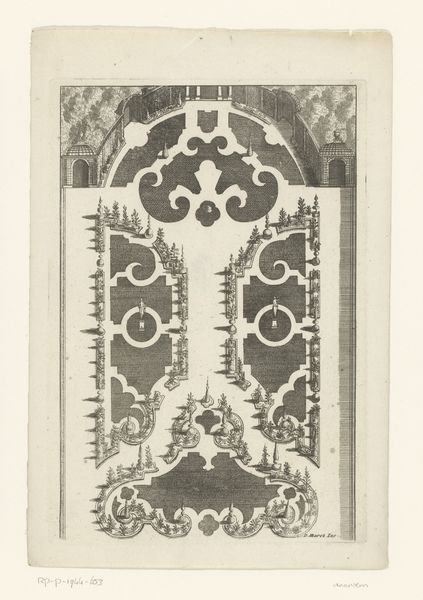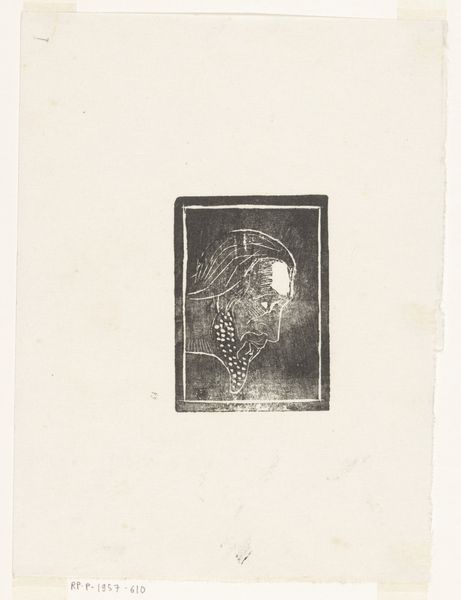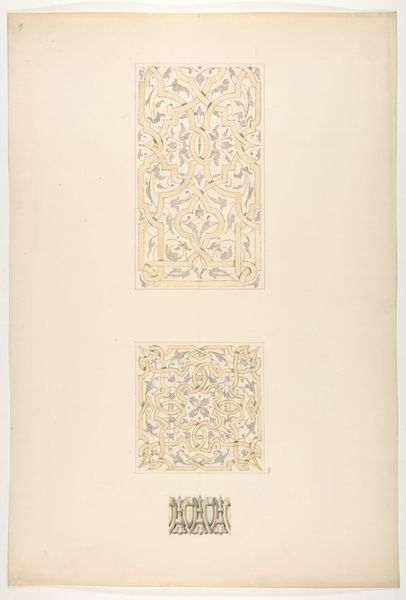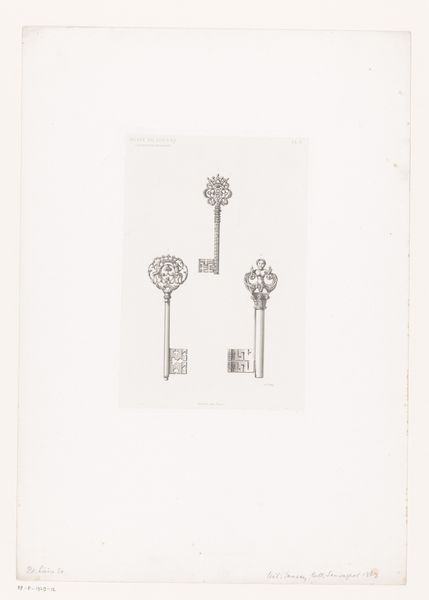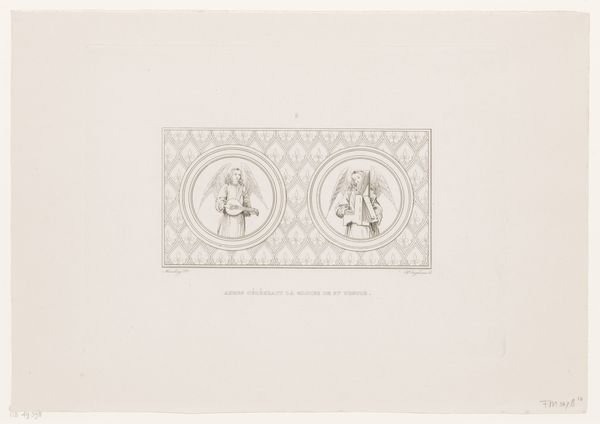
#
photo of handprinted image
#
natural shape and form
#
light pencil work
#
natural tone
#
ink paper printed
#
white dominant colour
#
light coloured
#
white palette
#
column
#
golden font
#
watercolor
Dimensions: height 229 mm, width 160 mm
Copyright: Rijks Museum: Open Domain
Curator: Editor: Here we have Edouard Lièvre's "Twee zuilen, gedecoreerd met de Fleur de lis," created in 1863. It’s a very delicate print, all in whites and creams...it almost looks like an architectural study. What's your perspective on this artwork? Curator: The beauty for me resides in the print itself. How does the material quality of ink on paper interact with its depicted subject? Editor: So, instead of thinking about these as representations of columns, you're more interested in the production process? Curator: Exactly! The act of reproduction democratizes art. How many copies of this print were made? Where were they distributed? Each impression brings architecture, typically the domain of the elite, into the homes of ordinary people. We should examine not just the 'high art' of the design, but the industrial process that brought it to the masses. The choice of printmaking as a medium moves these columns, these symbols of power, into the realm of the everyday. What do you think? Editor: That’s a fascinating point. I hadn’t considered the democratizing effect of printmaking. It really reframes my understanding of its purpose. Curator: Consider also the materials used - paper and ink - and their sources, as well as the labour involved in the printing process. These seemingly mundane factors contribute to the work's overall meaning, offering insight into 19th-century industrial practices. Editor: It gives me a completely different lens through which to appreciate this work. Thanks! Curator: Indeed. Paying attention to materials and the processes involved makes even the most seemingly straightforward work reveal deeper meanings.
Comments
No comments
Be the first to comment and join the conversation on the ultimate creative platform.
